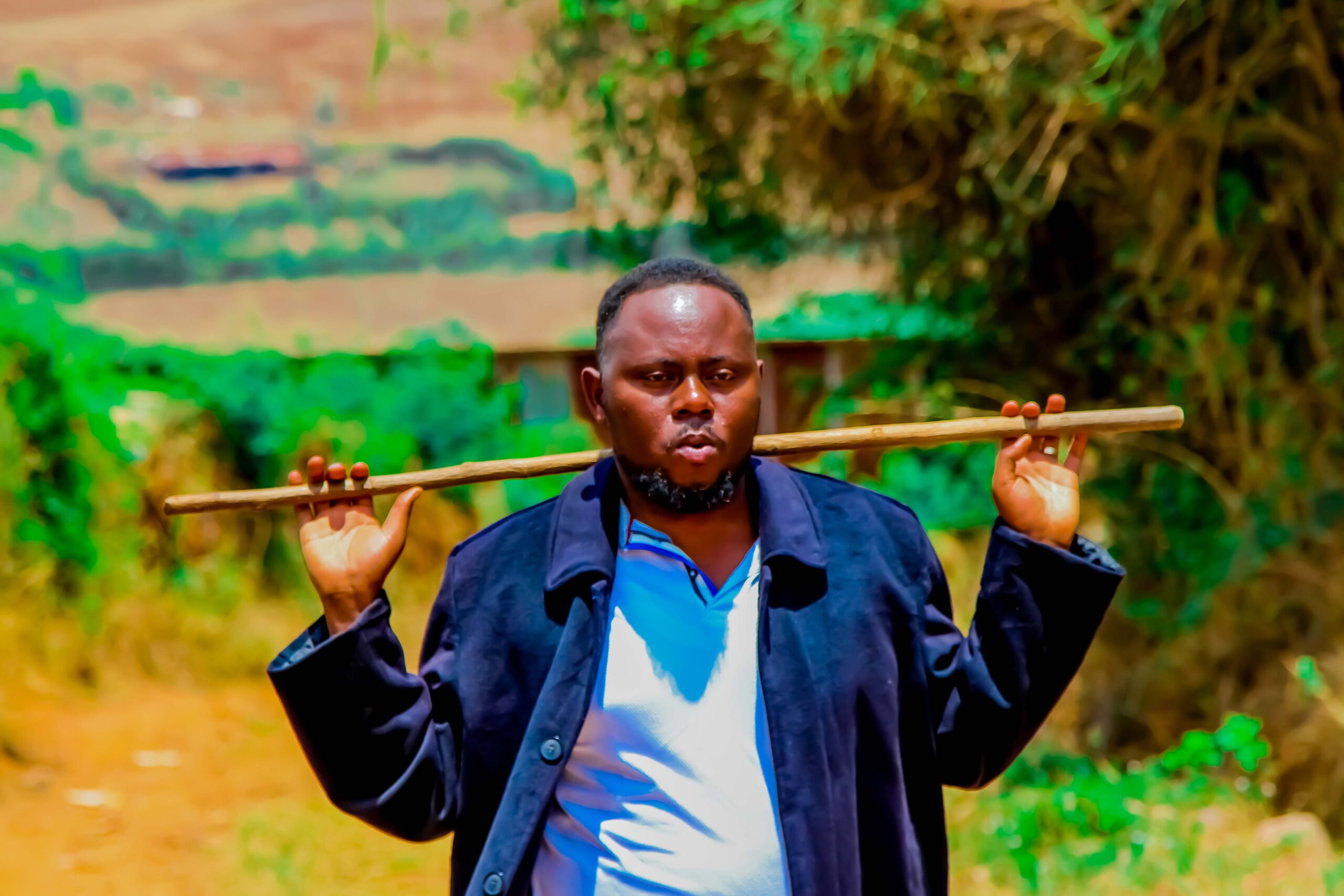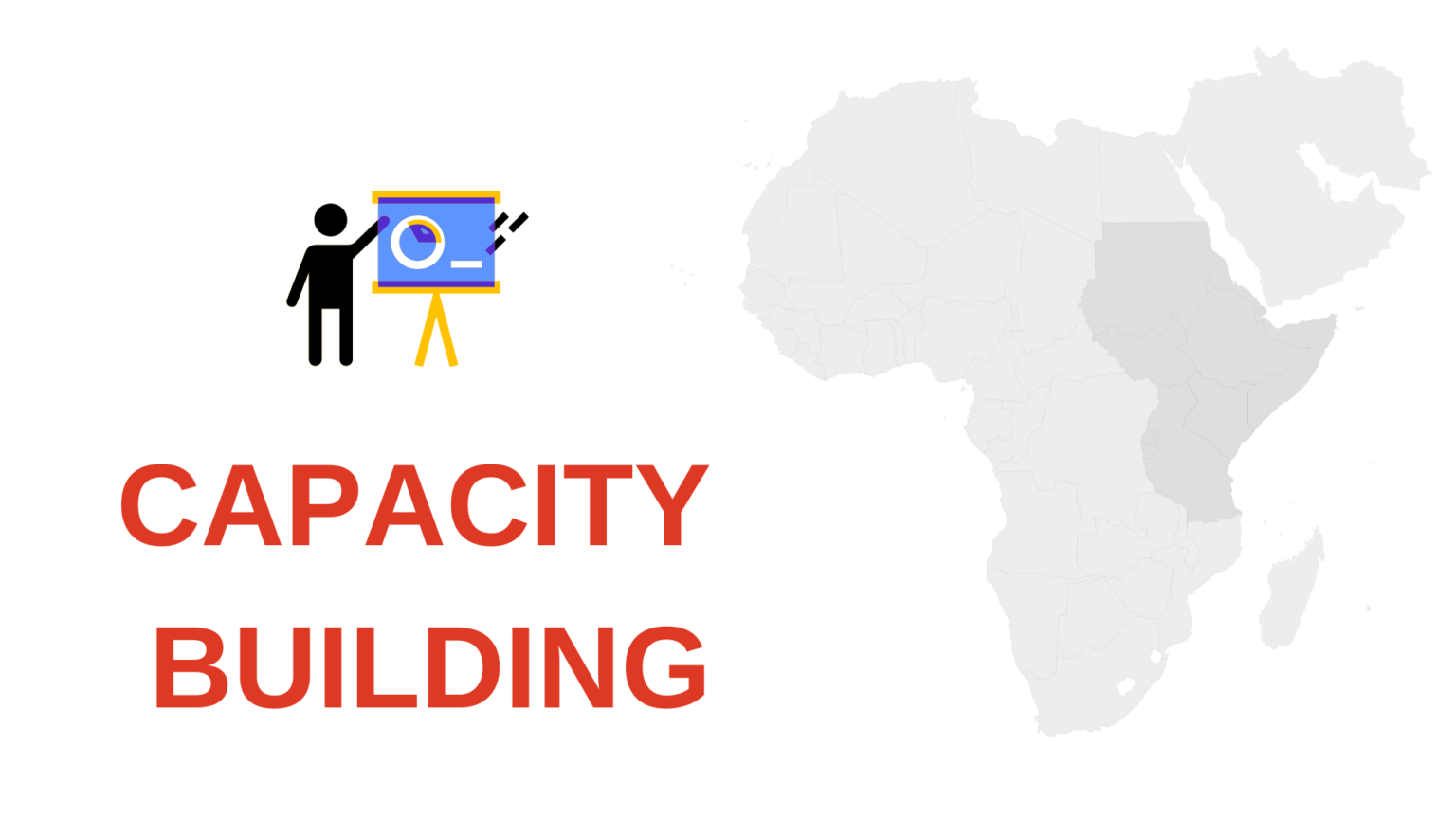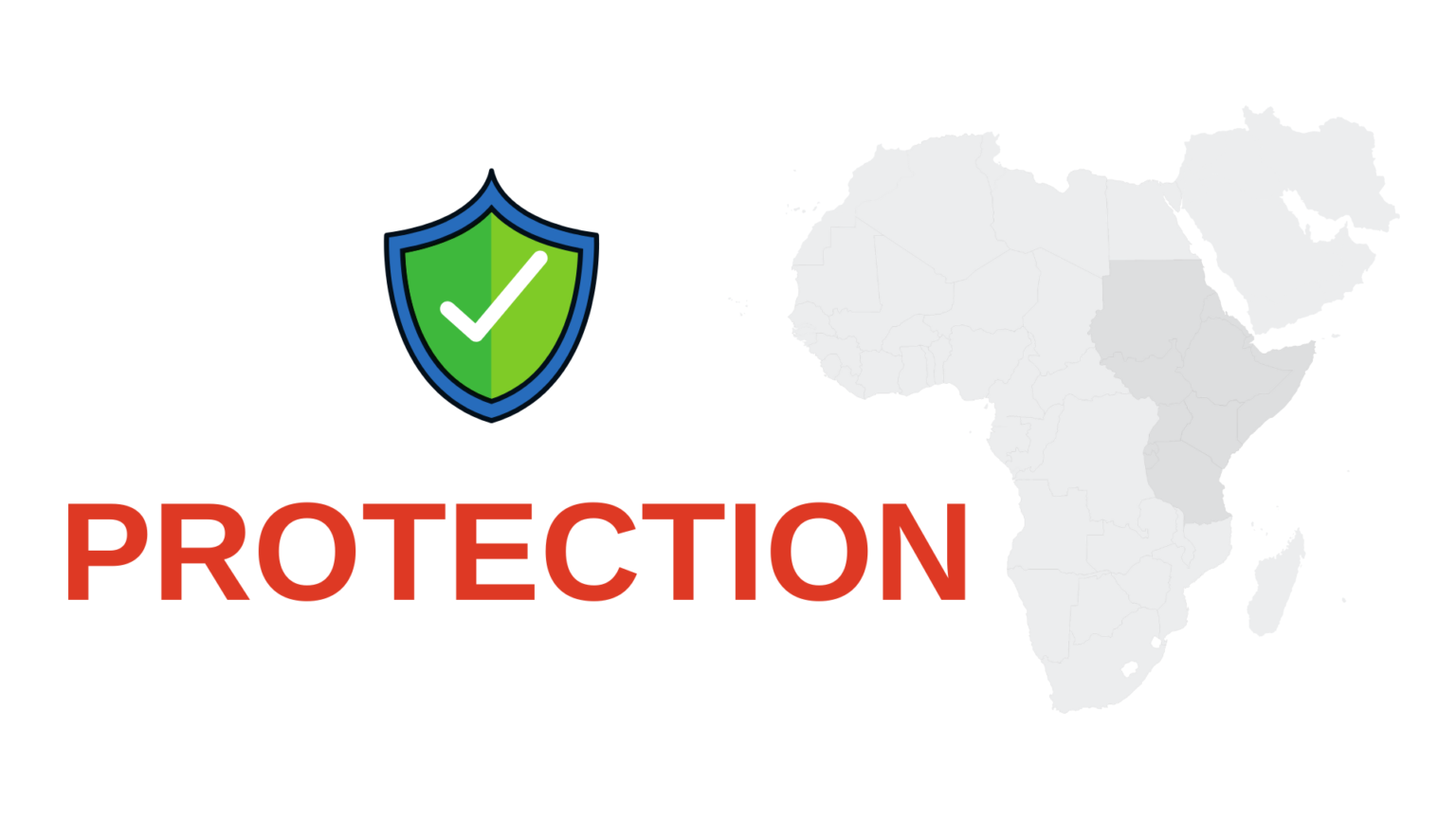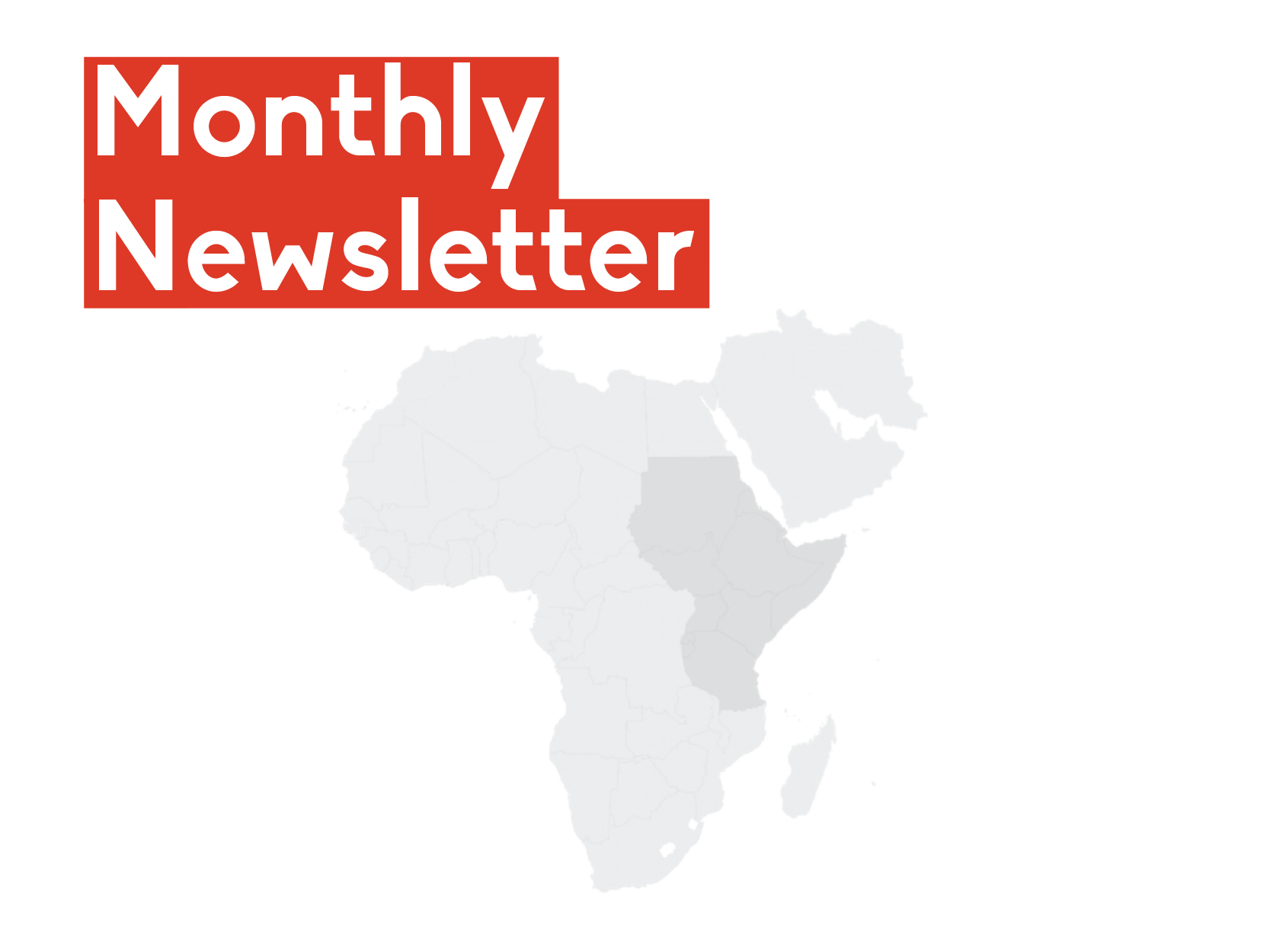Hello Friends,
In our efforts to address the protection needs and gaps of human rights defenders (HRDs), DefendDefenders seeks to influence global policy and ensure that the rights and safety of HRDs remain a priority on the international human rights agenda. Every year, we actively engage with UN Human Rights Council (HRC) sessions to maintain international scrutiny on thematic or country specific situations that impact HRDs. The HRC sessions provide a unique platform where states, international organisations, non-governmental organisations, and other stakeholders converge to address pressing global human rights issues.
In September, a team from DefendDefenders, including HRDs and I attended the 57th session in Geneva, where I raised serious human rights concerns under the Council’s agenda Item 4 in the General Debate. This agenda item enables states, NGOs, and stakeholders to discuss critical human rights situations. I delivered an oral statement highlighting ongoing crises in Ethiopia, Burkina Faso, Mali, Tanzania, Eswatini, and the Greater Sahel, urging the international community to act, particularly regarding the alarming situation in Ethiopia. The flight of HRDs reflects the extreme climate of fear facing independent actors. Additionally, the proposed amendments to the 2019 CSO Proclamation, along with threats to civil society and the national human rights institution (EHRC), are deeply concerning.
In August, DefendDefenders, Human Rights Watch, and Amnesty International released a Q&A document on the Fact-Finding Mission (FFM) for Sudan, established by the UN Human Rights Council 54th session. As part of our wider advocacy strategy we delivered a statement highlighting severe human rights violations in Sudan, some potentially qualifying as international crimes. We called for urgent international attention and urged states to extend the FFM’s mandate, a call supported by 80 NGOs. The FFM plays a vital role in advancing accountability by exposing abuses, preserving evidence, and identifying perpetrators, with a call for immediate action to end impunity and deliver justice to Sudanese victims.
We also highlighted the situation in Burundi, urging the Council to extend the Special Rapporteur’s mandate due to risks related to upcoming elections and violations of socio-economic rights. Our advocacy at the HRC sessions is driven by a commitment to accountability and amplifying the voices of the most marginalised.
Lastly, I extend gratitude to all partners who ensure the safety and effectiveness of HRDs and thank all development partners who relentlessly support the promotion and protection of HRDs across the African continent. DefendDefenders remains fully committed to its mission to enhance the safety and capacities of HRDs in the region for greater resilience and effective fulfilment of their mandates.
I invite you to turn the pages.
Hassan Shire,
Executive Director, DefendDefenders
Chairperson, AfricanDefenders
Human Rights Defender of the Month:Daniel Ngendakumana

Daniel is a committed slam poet and human rights defender, using his powerful words to advocate for change in his home country, Burundi. Living in exile since 2015, Daniel has turned to poetry as a medium for raising awareness about the struggles his country faces, particularly focusing on themes like patriotism, civic values, and the preservation of Burundian culture.
On 19 November 2015, Daniel faced the difficult decision to leave his home country, Burundi. At that time, he was in the final year of his undergraduate studies in health sciences, specialising in midwifery at the National Institute of Public Health. With only four months of internship left to complete his bachelor’s degree, Daniel was arrested and subjected to intense interrogation at a rural hospital where he was interning.
Updates from DefendDefenders

From 2- 5 September 2024, a team from DefendDefenders conducted an assessment mission in Eastern Uganda, visiting a total of seven organisations. The mission aimed to evaluate the safety and security needs of disability and minority rights defenders, as well as their organizations, and to develop enhanced security measures to support their protection. During the mission, the team reviewed existing security protocols, identified key challenges, and explored potential areas for additional support.
Between 5 – 8 September 2024, DefendDefenders and AfricanDefenders attended the inaugural Global Artivism 2024 in Pretoria, South Africa. The conference was jointly convened by the Tshwane University of Technology-Faculty of Arts and Design, Riky Rick Foundation, Community Arts Network (CAN) and the Global Commons Alliance (GCA). It focused on mainstreaming artivism across the world, highlighting the power of art as a tool for activism and social change. The different sessions of the conference explored art’s role in activism, focusing on performative dissent and social advocacy and art’s ability to emotionally connect with audiences to communicate complex social messages. The conference also addressed key challenges experienced by the artivists, such as exclusion of women, gaps in documentation of violations and limited access to protection and advocacy mechanisms. It emphasized the need to build inclusive, resilient artivism movements, and foster collaboration between art space and civil society organisations to effectively drive social change.
On 9 September 2024, DefendDefenders conducted a thorough risk assessment for the individual HRDs and their organisations in Butaleja District (Eastern Region). The assessment aimed at identifying best practices and gaps within the organisations and identifying existing deficiencies and requirements in line with security and safety. The team pointed out some possible solutions to better manage the security and safety of CSOs and HRDs.
Between 10 – 12 September 2024, DefendDefenders/AfricanDefenders partnered with Meta to deliver an online digital security training for eleven HRDs from Ghana, Cameroon, and Burkina Faso, particularly those working online. The sessions covered security basics such as password management, two-factor authentication, phishing prevention, privacy tools, Facebook Community Standards, and available support resources. Additionally, discussions explored balancing personal and professional online presence, the significance of privacy and consent in the digital age, and the need for online behavior legislation. In response to participants’ requests, the trainer provided further resources on WhatsApp security.
From 16- 20 September 2024, DefendDefenders in collaboration with The Human Rights Defenders in Exile Working Group organized a self-paced training on navigating internet shutdowns. The training equipped 10 exiled HRDs from Sudan, DRC, Burundi, Rwanda, and South Sudan with essential skills to continue their advocacy work during internet blackouts. Key topics included strategies for maintaining communication, alternative digital tools, and methods for documenting and reporting human rights violations amid restricted internet access.
Over a period of eight days 16 –20 and 23 – 25 September 2024, DefendDefenders provided a comprehensive physical and digital security management training of trainers for 15 HRDs in Kampala, Uganda to safeguard their safety and ensuring the continued protection of human rights. The trainees were equipped with facilitation skills to transfer the knowledge to their peers. The training further empowered the HRDs to navigate the challenging landscape and the ever-changing operating environment and prepare for the upcoming election periods, considering the escalating threats and risks faced by HRDs ahead of the 2026 general elections in Uganda.
From 23 – 26 September 2024, DefendDefenders conducted an advanced digital security training in Kampala for 16 participants from various organisations across Uganda. The training focused on participants sharing the specialized technical expertise, skills, and experience they gained through the Infuse learning path. Additionally, it aimed to help them refine their skills within the digital protection community, strengthen cross-regional support networks, and build relationships that will endure beyond the project’s duration.

In September, DefendDefenders attended the 57th session of the UN Human Rights Council (HRC57), which began on 9 September. The organisation focused on advocating for the extension of the mandate of the Fact-Finding Mission (FFM) on Sudan, raising awareness about the shrinking civic space in Ethiopia, and urging the Council to extend the Special Rapporteur’s mandate on Burundi.
On 20 September 2024, DefendDefenders hosted a side event in Geneva featuring the Special Rapporteur on the situation of human rights in Burundi, Mr. Fortuné Gaetan Zongo, alongside human rights defenders (HRDs). The event came at a critical juncture as Burundi approaches two successive electoral periods in 2025 and 2027. During this side event, the Special Rapporteur presented his analysis of the human rights situation in Burundi and engaged in dialogue with HRDs, who articulated their expectations from the Council and the international community.

Between 1- 30 of September 2024, DefendDefenders received and handled a total of 96 requests under the emergency protection program. 24 (25%) requests were approved of these 16 were from male HRDs, six from WHRDs, one organisation was supported, and one other. Majority of the requests were from Uganda (eight requests), Somalia (five requests), Sudan and Ethiopia with three requests each, Kenya and Tanzania with two requests each, and Burundi (one request). A total of 27 individuals (three male, 10 female, 14 undisclosed gender) indirectly benefited from the program.
38 (40%) requests were rejected due to organisational mandate limitations, verification concerns and other related reasons. 14 (15%) requests were referred to other protection service providers and related stakeholders. 20 (20%) requests are under verification and assessment processes.
Country Updates:
ETHIOPIA
On 3 September 2024, security forces opened fire on protesters in Gondar city, killed two and injured two others. The protesters had gathered in response to the murder of Nolawit, a two-year-old child who was abducted on 28 August 2024. Kidnappers initially demanded one million birrs, later reducing it to 300,000 birrs after negotiations. Despite her parents paying 200,000 birrs, the kidnappers killed Nolawit and abandoned her body in a yard.
On 9 September 2024, the Ethiopian government released seven senior members of the Oromo Liberation Front (OLF) who had been detained since 2020 for what rights groups described as “purely political” reasons. Abdi Regassa, Dawit Abdeta, Lammi Begna, Michael Boran, Kenessa Ayana, Gaada Oljira, and Gaada Gebissa were detained without charges. They faced repeated rights violations, including forced disappearances and inhumane detention conditions. Despite multiple court orders for their release, authorities ignored them.
SOMALIA
On 3 September 2024, Somaliland’s intelligence officers detained opposition MP Mohamed Abib at Hargeisa Airport as he returned from Dubai, subsequently moving him to an undisclosed location. This detention followed a request from the Attorney General in August to lift Abib’s parliamentary immunity to pursue criminal charges related to his meetings with officials from Somalia and Djibouti, as well as his critical statements regarding Somaliland’s conflict in Las Anod. At the end of September, Somaliland’s Supreme Court ordered the release of MP Mohamed Abib, who had been held in a prison near the port city of Berbera. The court ruled that his arrest was unlawful, following a unanimous vote by the regional parliament to uphold his immunity. This decision complicated the government’s efforts to keep him detained and undermined his political career.
SOUTH SUDAN
On 9 September 2024, police in Juba arrested journalist George Ruot following a defamation suit filed by the Union of Journalists of South Sudan (UJOSS). Ruot, a vocal critic of UJOSS leadership, accused them of corruption and mismanagement, which UJOSS denies. UJOSS President Patrick Oyet said they pursued legal action after failing to resolve the issues amicably and reported that Ruot had contacted UJOSS donors to halt their funding. Ruot was later released on bail.
TANZANIA
On 7 September 2024, unknown assailants abducted Ali Mohamed Kibao, a senior member of CHADEMA from a bus traveling from Dar-es-Salaam to Tanga. Authorities found Kibao’s body the following day, with evidence of severe beating and acid burns. The Tanzanian police have launched an inquiry into the case. This incident highlights ongoing abductions and violence against opposition members and follows August’s mass arrests of Chadema supporters.
UGANDA
In September 2024, the Uganda police hit National Unity Platform NUP leader Robert Kyagulanyi with a tear-gas canister while he visited his lawyers in Bulindo, Kampala. Despite reports from officers that Kyagulanyi stumbled while getting into his vehicle, X-ray results later showed tear-gas canister fragments in his leg. Police had attempted to block the opposition leader from marching down a road, which led to an altercation where Kyagulanyi was injured
On 3 September 2024, a statement revealed that since May 2024, authorities have arrested at least 81 environmental rights defenders and activists protesting large-scale oil projects in Uganda.155 In August 2024 alone, police arbitrarily arrested and detained 72 HRDs and local community members during protests in opposition to these projects. The repression has intensified as projects like the EACOP, Kingfisher, and Tilenga, led by TotalEnergies and CNOOC, advance in the region.

